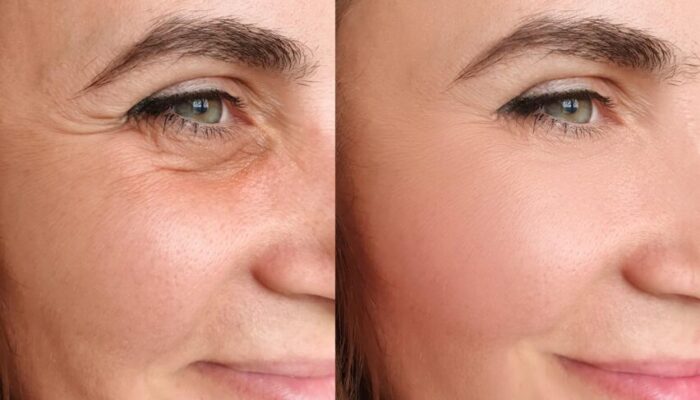Maintaining healthy skin, teeth, and eyes isn’t just about looking good — it’s about protecting vital parts of your body that serve important functions. Your skin is your largest organ and your first line of defense against environmental threats. Your teeth are essential not just for eating, but for overall health, while your eyes connect you to the world and shape your perception of everything around you.
Keeping these three systems healthy requires a combination of good hygiene, lifestyle habits, and most importantly — the right nutrition. This article dives into the key vitamins and minerals that play a direct role in maintaining the health of your skin, teeth, and eyes — and how to make sure you’re getting enough of them.
- Vitamin A – The Vision and Skin Savior
Why it matters:
Vitamin A is a fat-soluble vitamin that plays a critical role in skin repair, immune function, and maintaining the health of your eyes. It supports the production of retinal, a component essential for low-light and color vision. In your skin, vitamin A supports cell turnover, keeps tissues hydrated, and helps fight acne.

Deficiency risks:
- Dry, scaly skin
- Night blindness or dry eyes
- Weakened immune response
Where to get it:
- Animal sources: Liver, egg yolks, and dairy
- Plant-based sources (as beta-carotene): Carrots, sweet potatoes, spinach, and kale
Pro tip: Pair beta-carotene-rich foods with healthy fats like olive oil or avocado to enhance absorption.
- Vitamin C – The Collagen Catalyst and Gum Protector
Why it matters:
Vitamin C is essential for the synthesis of collagen, the structural protein that keeps your skin firm, elastic, and youthful. It’s also a powerful antioxidant that protects cells from damage. For dental health, vitamin C strengthens gums and prevents gum disease, helping to keep your teeth anchored firmly in place.
Deficiency risks:
- Dull, sagging skin
- Bleeding gums or loose teeth
- Slow wound healing
Where to get it:
- Citrus fruits (oranges, lemons)
- Bell peppers, broccoli, strawberries, and kiwi
Pro tip: Vitamin C is sensitive to heat, so eat fruits and vegetables raw when possible for maximum benefit.
- Vitamin D – The Bone and Tooth Builder
Why it matters:
Strong teeth and bones depend on the effective absorption of calcium and phosphorus, a process regulated by Vitamin D. A deficiency can lead to weakened enamel, tooth decay, and even gum disease. It also plays a role in skin cell growth and repair, making it important for wound healing and inflammatory skin conditions like psoriasis.
Deficiency risks:
- Weak or brittle teeth
- Increased risk of cavities
- Dry or inflamed skin
Where to get it:
- Sunlight exposure (10–20 minutes per day)
- Fish rich in fats, including salmon and mackerel, as well as dairy that is fortified and the yolks of eggs
Pro tip: Combine vitamin D with calcium-rich foods like yogurt or leafy greens to maximize dental benefits.
- Zinc – The Healing Mineral
Why it matters:
Zinc is a trace mineral that supports wound healing, reduces inflammation, and helps fight bacteria — all essential for clear skin. It’s also found in high concentrations in the retina and plays a role in visual signal transmission. In the mouth, zinc helps combat plaque and supports gum health.
Deficiency risks:
- Frequent breakouts or skin infections
- Delayed wound healing
- Poor night vision
Where to get it:
- Oysters, red meat, pumpkin seeds, legumes, and nuts
Pro tip: Vegetarians and vegans may need to consume 50% more zinc due to lower bioavailability in plant-based foods.
- Omega-3 Fatty Acids – The Anti-Inflammatory Hero
Why it matters:
Omega-3s help maintain the integrity of the skin barrier, keeping it hydrated and resilient. They also reduce inflammation, which can benefit people with acne, eczema, or psoriasis. For the eyes, omega-3s prevent dry eye syndrome and support overall retinal health.
Deficiency risks:
- Dry, irritated skin or eyes
- Increased acne or inflammation
- Greater risk of gum disease
Where to get it:
- Fatty fish (salmon, sardines, herring)
- Chia seeds, flaxseeds, walnuts
Pro tip: Aim for two servings of fatty fish per week or consider a quality fish oil supplement if you don’t eat seafood.
- Calcium – The Dental and Skeletal Essential
Why it matters:
Calcium is the main mineral that gives strength to bones and teeth. Without adequate calcium, the body leaches it from your bones, leading to weakened teeth and a higher risk of fractures. It additionally has a function in nerve signaling and muscle contraction.

Deficiency risks:
- Tooth decay or weak enamel
- Brittle nails and bones
- Muscle spasms or cramps
Where to get it:
- Dairy products (milk, cheese, yogurt)
- Leafy greens (kale, bok choy)
- Fortified plant-based milks and tofu
Pro tip: Ingesting calcium with vitamin D aids in better absorption.
Lifestyle Tips for Better Skin, Teeth, and Eye Health
- Hydrate regularly: It contributes to oral hygiene by keeping the mouth clean.
- Quit smoking: Tobacco use drastically increases your risk of gum disease, cataracts, and premature skin aging.
- Limit sugar and processed foods: These can promote acne, gum inflammation, and degrade collagen.
- Get regular checkups: Visit your dentist and optometrist yearly, and see a dermatologist for skin concerns.
- Wear sunscreen and sunglasses: Daily protection is necessary to prevent damage from UV radiation.
Conclusion
Authentic wellness and beauty arise from the inner self. A nutrient-rich diet filled with whole, unprocessed foods does more than just enhance your appearance — it builds resilience, prevents disease, and supports your body’s most visible (and vulnerable) systems. By prioritizing key vitamins and minerals like A, C, D, calcium, zinc, and omega-3s, you’re giving your skin, teeth, and eyes the best chance to stay healthy, strong, and vibrant for years to come.
